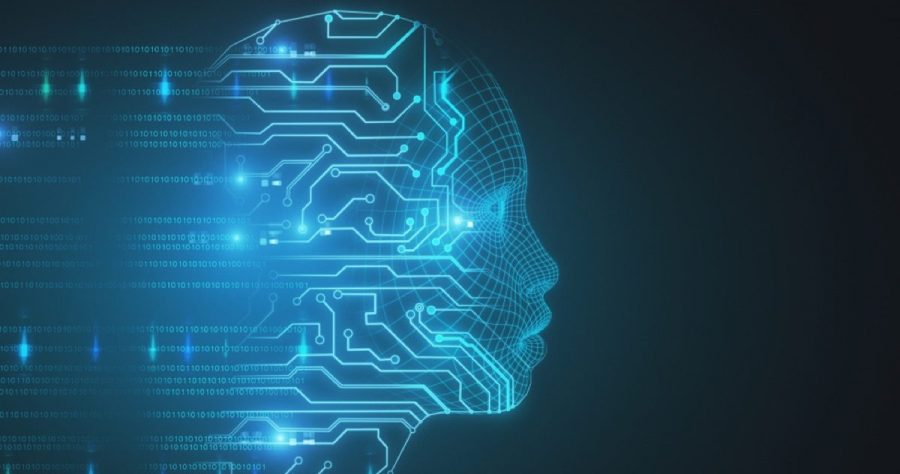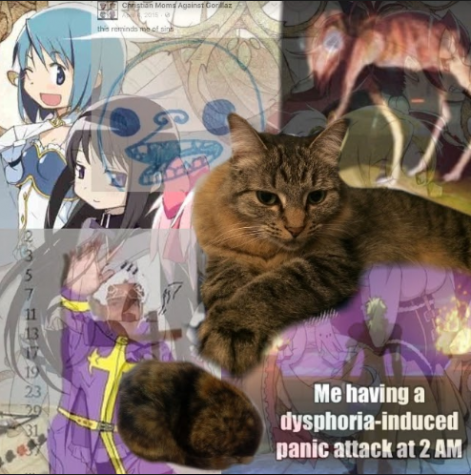The Moment Your Brain Becomes Obsolete
Via The Mac Observer
You and I are animals. We are both part of the self-named species of Homo Sapiens, and we live on this mass we call planet earth. You may have been told this before, but for a moment let yourself absorb the full magnitude of that statement. Whether you believe in a higher power, an afterlife, or that your life has a specific purpose, I challenge you to grapple with your mortality. The truth is, the difference between you and a squirrel is that you have a much more advanced brain. However, both you and the squirrel evolved from some single-celled organism billions of years ago. Both you and a squirrel eat, and you breathe oxygen released by the Plantae that covers the earth’s surface. You both think, and, one day, you will die. Following your death, worms in the soil will digest your organic matter and start the cycle of life all over again.
Fortunately, while the squirrel acts, as far as we know, on instinct and basic survival skills, we act upon intuition and our limited understanding of the surrounding Universe. We do not only learn and solve problems, but we also create the unnatural. “Unnatural” not in the sense that it is “bad,” but in the sense that the earth did not give it to us. We created it from nothing. To a degree, you could argue nothing can be formed from complete nothingness if you count the inspiration we often find in nature, but that squirrel can’t make a Hadron Collider if you gave him a detailed enough set of instructions. Could you or I do that? Probably not, but another human can, and they have. Meanwhile, the squirrel will only be worried whether it has enough food for the next winter.
What makes us “special,” compared to the billions of other organisms on earth is our consciousness of reality. We are continually learning about everything around us, creating new solutions to each problem we face, and often creating solely for the sake of creation. We can do this because our brains allow us to imagine. Human imagination is the source of all unnatural things, but more importantly, it enables us to perceive both the physical and metaphysical aspects of our reality. However, no matter how powerful our brain is, one day, we will build our last creation rendering your mind obsolete.
You may be familiar with the idea of Artificial Intelligence (AI), and while Science Fiction and conspiracy theorists fill our heads with visions of mass destruction and the end of humanity as we know it, here is where the technology stands. As you read this, millions of men and women around the globe and billions of dollars are being used to explore what is technically referred to as, “Narrow AI.” Narrow AI is the non-sentient algorithm used to beat you in chess and understand our voice to record a grocery list. Narrow AI can take a single task, such as playing a video game, and by interacting with the rules of the game, teach itself to play the game better than the most experienced humans. Certain types of these Narrow Artificial Intelligence (NAI) algorithms are smart enough that they can form their own minimal sentences by being given the “rules” of language. During one such test, within minutes of beginning, the two systems had created a language that we couldn’t understand and began conversing with each other before the team of spooked engineers pulled their proverbial plug. That may send shivers down your spine, but for now, the NAI is confined to these small realms of one task at a time. Currently, we are barely at the cusp of creating an even semi-conscious AI, or what is called “General-AI.”
When we think, our brains send information via neurons at nearly one third the speed of sound. While in comparison, computers send information 100,000 times faster at the speed of light. Through a process called Machine Learning, NAI algorithms can learn, and teach itself certain things without explicit instruction from humans. The more advanced AGI (Artificial General Intelligence) would learn and mature similar to human children. With time and more information, the system would be able to analyze a question, and using only the information given to it, give you its answer by mimicking human problem-solving. It would certainly not be able to perceive its reality and question its existence, but it would be able to form its own opinion on the design and construction of a building.
The most prominent limitation engineers face while building AGI is trying to allow the algorithm to mimic the sheer flexibility of our brains. We don’t have many limitations of what we can think about or what we can imagine. Our brains give us the ability to plan and solve a problem by improvising any solution for nearly any problem. Although right now Narrow AI is already able to master a video game and create its strategy by interpreting the rules for itself, it still lacks the computing power to create a game for itself from scratch.
While experimenting with AGI, we have successfully built a neural network 1/100th the size of a human brain able to replicate one second of human brain processing. However, to reach that one second equivalent of human brain processing, it took the system nearly an hour, and more than 90,000 combined computer processors. Keep in mind that the replicated neural network functioned for 3,600 seconds while working 100,000 times faster than a real human brain, to reach the equivalent of just 1 second of human brain activity at 1/100th the scale. Obviously, the technology is still limited, but like any technology, it will evolve and grow until we can create an algorithm similar to a human child. Once we are there, the system will mature and learn everything it has taken humans thousands of years to determine, in a matter of weeks. Soon after we can create this truly functioning AGI, the next step, the most substantial step, will hypothetically take place without any human intervention. At this point, we will have created the foundations necessary for the birth of Artificial Super Intelligence.
Once the algorithm achieves Artificial Super Intelligence (ASI) level of sentient thinking, there will inevitably be an “information singularity.” While the algorithm will start at a very basic IQ, within a matter of months, or weeks, even seconds, it will begin to understand enough and be conscious enough that it will begin to upgrade itself. At that point, there is no unplugging the algorithm. Its intelligence will be infinitely expanding and evolving far beyond our comprehension, thus dubbed, “the information singularity.”
The only off switch would be a natural catastrophe capable of sending us back to the stone age. However, at that point, it is unknown whether the system will be self-sufficient, or not, feeding off some unknown energy source, but one thing is certain. This is not science fiction. Although a great deal of this information relies on hypotheses, there is validity to them. We are on the path to creating something so marvelously unnatural that it may completely transcend human understanding, mortality, and organic matter. Hypothetically, this level of AI, this “being,” will be able to solve any problem, create anything, and in a matter of seconds after the information singularity, render our brains, and certainly that squirrel’s brain, forever obsolete.
Your donation will support the student journalists of The Tower and John Adams High School. Your contribution will allow us to purchase equipment and cover our annual website hosting costs.

Jonathon Zapf is a Senior at John Adams who transferred from Trinity School at Greenlawn at the beginning of his junior year in 2018 just for fun. Of course...












Dan Nguyen • Feb 25, 2019 at 1:14 pm
Wow, this is really interesting.
Calvin Dang • Feb 22, 2019 at 1:30 pm
I love this. Props to you!
Timothy Dumple • Feb 19, 2019 at 11:58 am
Scary stuff. Well written tho